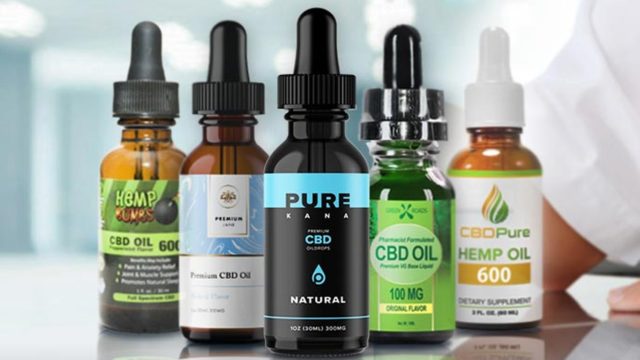When It Comes to CBD, Oil is Most Effective
2019.11.28
CBD is the miracle compound found naturally in cannabis, and now it’s found in soda and salad dressing as well, among other things. The explosive onset of cannabidiol (CBD) into the retail sphere can hardly go unnoticed by average folks in the US and EU, who see a growing variety of these strange products popping up recently. Many seem to have a claim to wellness that justifies their existence, backed by a single ingredient that’s common to them all: CBD.

The non-psychoactive cousin to THC, CBD is a cannabinoid that interacts with the body’s endocannabinoid system in ways that don’t get you “high”, but instead has been shown in recent years to help sufferers of cancer, PTSD, epilepsy, and even everyday conditions like backaches, arthritis and general pain. Many of these studies are part of the momentum behind lawmakers to have cut the red tape surrounding cannabis research and medical availability, but is there any good reason to include CBD in beer, chewing gum, or even pillowcases?
Inefficient Chemical Paths of CBD
Cannabinoids like CBD interact with the whole-body endocannabinoid system, but the highest number of receptors are concentrated in your brain. These receptors play a role in a person’s appetite, mood, memory, pain threshold and even sleep. Many biological functions are seemingly regulated by endocannabinoid receptors, and when stimulated by CBD they produce positive effects, depending on how it’s consumed.
CBD can indeed be ingested in food form but the path it takes to the brain is more roundabout. There’s much more time for it to be metabolized and negated, which is the liver’s job before digested things reach the bloodstream. A more effective method of using CBD is to use oil itself, which instead of being added to something you’ll eventually digest, is put directly on the tongue or applied topically to an area for temporary relief from pain, tension, aches and other common ailments.
Consumer Must Navigate CBD Products Wisely
Consumers who want to try CBD products held to the strictest letter of law would be wise to ignore the more colorful and crazy edible CBD products out there, which may indeed contain CBD but for now exist via loopholes in both the EU and the US. Most governments see CBD as a must-have in terms of OTC accessibility, but that doesn’t mean they’ll throw their weight behind CBD cotton candy or peanut butter. Oils, rather, are how patients in the most groundbreaking medical studies have been administered CBD and are capable of stricter compliance due to the fact that they aren’t labeled as food products or intended as such.
In the US, CBD foods are only sparsely available in states that already snub FDA regulations, meaning that even if you take care in your product choices and intend to buy CBD only, they aren’t as strictly controlled and there is a risk of higher THC content. The country is a multicolored quilt of individual states where cannabis laws vary, from strictly illegal to medical availability to recreational. Federal laws separate from the FDA mandate that hemp products have THC content of less than 0.3%, so the only CBD products universally available and also legal are THC-free, hemp-sourced, and manufactured to the highest standards.
Safe oils like those from CBDMedic are sold everywhere in the US and Europe, where like the US there’s a similar blanket law requiring THC content for available products under 0.3%. Using blended hemp extract, CBDMedic products are produced in a cGMP facility and come from Cannabis sativa L, a THC-free hemp. With other complementary natural emollients like tea tree oil and beeswax, CBDMedic products like the Itch, Rash & Pain Medicated Ointment provide soothing relief. Clearly, CBD is better at its job alone, and not brewed and then ingested as a kombucha or tea.
Serious Patients Snub CBD Foods
Not only may CBD foods be less effective than oils, they’re also a signal that you may be in an area where consumers run the risk of buying CBD products that are subject to less oversight. Even in Europe, where its less restrictive food authority has labeled CBD a “novel food” ingredient, people are becoming more educated on the idea that relying on CBD that’s been baked into a cake for pain relief is futile. These products represent nothing more than a marketing ploy for now, and the biggest proof is in the stories of how people who need CBD to live use it.
In short, they aren’t drinking CBD lemonade. Oil is a commonality between success stories from CBD studies, and many have relied on Epidiolex—the only FDA-approved CBD product—even those exploring CBD for treating ailments other than epilepsy. This is because oil is the best way to administer CBD and CBD is the only thing that counts. This is why for serious CBD needs it’s important to forget the frills and focus on the science.
More Articles
Copyright © Fooyoh.com All rights reserved.